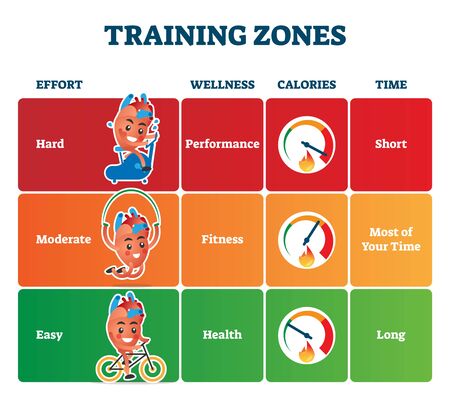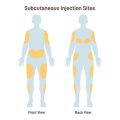Introduction to Osteoporosis in the UK
Osteoporosis is a significant public health concern across the United Kingdom, affecting millions of individuals and their families. Characterised by decreased bone density and increased fragility, osteoporosis often remains undetected until a fracture occurs, making early prevention all the more crucial. According to recent statistics, it is estimated that over three million people in the UK are currently living with osteoporosis, with postmenopausal women and older adults being particularly vulnerable. The consequences of osteoporotic fractures can be life-changing, often resulting in loss of independence and increased need for long-term care.
While age, genetics, and lifestyle all play important roles in the development of osteoporosis, nutrition stands out as a pivotal factor in both prevention and ongoing management. A well-balanced diet not only supports bone health but also contributes to overall wellbeing. In the context of the UK’s unique dietary habits and available food sources, understanding how best to nourish our bones becomes a vital part of everyday self-care and long-term health planning. By making informed nutritional choices, individuals can take meaningful steps towards reducing their risk of osteoporosis and maintaining a better quality of life as they age.
2. Key Nutrients for Bone Health
Maintaining strong and healthy bones is essential in preventing osteoporosis, especially as we age. In the UK, several key nutrients play a crucial role in supporting bone health. The following discussion outlines these nutrients, their importance, and the recommended intake levels according to national guidelines.
Calcium: The Foundation of Bone Strength
Calcium is the primary mineral found in bones and is vital for maintaining bone density. Adults in the UK are advised to consume an adequate amount daily to support bone structure and prevent osteoporosis.
| Age Group | Recommended Daily Calcium Intake (mg) |
|---|---|
| Adults (19-64 years) | 700 mg |
| Adults (65+ years) | 700 mg |
| Teenagers (11-18 years) | 800-1000 mg |
Dairy products such as milk, cheese, and yoghurt are excellent sources, but fortified plant-based alternatives can also help meet these requirements.
Vitamin D: Enhancing Calcium Absorption
Vitamin D is necessary for the body to absorb calcium efficiently. In the UK, due to limited sunlight exposure—especially during autumn and winter—it’s recommended that adults consider supplements.
| Group | Recommended Daily Vitamin D Intake (mcg/μg) |
|---|---|
| Adults and children over 1 year | 10 mcg (400 IU) |
| Pregnant and breastfeeding women | 10 mcg (400 IU) |
Oily fish, eggs, and fortified foods provide dietary vitamin D, but supplements are often needed from October to March.
Protein: Supporting Bone Structure and Repair
Adequate protein intake is also essential for bone health, as it helps maintain bone mass and supports repair processes. The UK recommends a balanced protein intake from both animal and plant sources.
| Population Group | Recommended Daily Protein Intake (g per kg body weight) |
|---|---|
| Adults | 0.75 g/kg |
| Elderly adults (with risk factors) | Slightly higher, based on clinical advice |
Poultry, fish, beans, lentils, tofu, nuts, and seeds all contribute valuable protein to the diet.
The Role of Other Micronutrients
While calcium, vitamin D, and protein are the mainstays of bone health nutrition, other micronutrients such as magnesium, zinc, and vitamin K also play supportive roles in maintaining bone integrity. A varied diet rich in whole grains, vegetables, fruit, nuts, and seeds will help ensure sufficient intake of these additional nutrients.
This holistic approach to nutrition forms a cornerstone of osteoporosis prevention and management strategies recommended throughout the UK.

3. Dietary Recommendations and Food Sources
Adopting a balanced diet that supports bone health is an essential part of osteoporosis prevention and management. In the UK, it’s important to focus on nutrient-rich foods that are easily accessible and fit naturally into everyday meals. Here are some practical suggestions tailored to British tastes and habits.
Include Dairy and Fortified Alternatives
Dairy products such as semi-skimmed milk, low-fat yoghurt, and mature cheddar cheese are traditional sources of calcium in the UK. For those following a plant-based or lactose-free diet, fortified plant milks (like soya, oat, or almond) offer an excellent alternative. Aim for two to three portions of these calcium-rich foods daily—think of enjoying porridge made with fortified milk for breakfast or a cheese and tomato sandwich at lunch.
Choose Oily Fish and Other Vitamin D Sources
Vitamin D helps the body absorb calcium effectively. Oily fish like mackerel, salmon, sardines, and pilchards are fantastic options; try adding grilled salmon to your Sunday roast or topping wholemeal toast with tinned sardines for a quick lunch. During the winter months when sunlight is limited, consider vitamin D-fortified cereals or a daily supplement as recommended by UK health guidelines.
Eat Plenty of Fruit and Vegetables
Aim for at least five portions of fruit and veg each day to provide essential vitamins, minerals, and antioxidants. Classic British favourites such as carrots, peas, broccoli, apples, and berries can easily be incorporated into stews, casseroles, or fruit crumbles. Root vegetables roasted alongside your main meal or a simple apple added to your morning porridge are easy ways to boost intake.
Wholegrains, Nuts, and Seeds
Wholegrain bread, oats, brown rice, and wholewheat pasta supply magnesium and fibre that contribute to bone health. Scatter chopped walnuts over porridge or mix sunflower seeds into homemade flapjacks for tasty snacks with added benefits.
Sample Meal Ideas
– Breakfast: Porridge made with fortified milk topped with sliced banana
– Lunch: Tuna salad sandwich on wholegrain bread with mixed leaf salad
– Dinner: Roast chicken with steamed broccoli and new potatoes
– Snack: Low-fat yoghurt with a handful of berries
These choices reflect familiar British meals while ensuring vital nutrients for strong bones are included every day.
4. Lifestyle Factors and Habits
Supporting bone health through nutrition is vital, but it is equally important to pay attention to daily habits and lifestyle choices. These can significantly influence the effectiveness of osteoporosis prevention and management strategies in the UK.
Sun Exposure for Vitamin D Synthesis
Vitamin D plays a crucial role in calcium absorption and bone health. In the UK, sunlight exposure can be limited, especially during autumn and winter months. Aim for regular, moderate sun exposure to your face, arms, and hands—ideally 10-15 minutes a day between April and September when the UV index is sufficient. During darker months, consider vitamin D supplements as per NHS guidance.
Exercise and Bone Strength
Physical activity stimulates bone formation and helps maintain bone density. Weight-bearing exercises such as brisk walking, dancing, or stair climbing are particularly beneficial. Resistance training using light weights or resistance bands is also recommended for building strength and supporting balance, which reduces fall risk.
| Exercise Type | Examples | Recommended Frequency |
|---|---|---|
| Weight-bearing | Walking, Dancing, Jogging | 30 mins most days |
| Resistance Training | Light Weights, Resistance Bands | 2-3 times per week |
| Balance & Flexibility | Tai Chi, Yoga | 2-3 times per week |
Minimising Alcohol and Smoking
Both excessive alcohol consumption and smoking can accelerate bone loss. In line with UK recommendations, keep alcohol intake within 14 units per week for both men and women, ideally spread over three or more days. If you smoke, seeking support to quit can have significant benefits not only for your bones but also for your overall health.
Summary of Key Lifestyle Recommendations
- Sunlight: Aim for safe sun exposure daily; consider supplements in winter.
- Activity: Engage in regular weight-bearing and resistance exercises.
- Alcohol: Stay within weekly unit guidelines.
- Smoking: Seek help to stop smoking if needed.
A Gentle Reminder
Caring for your bones is an ongoing journey. Small changes in daily routines—like enjoying a walk in the park or sharing a dance with loved ones—can make a meaningful difference. Remember, you are not alone; local services such as GPs, pharmacists, and community exercise groups are here to support you every step of the way.
5. Special Considerations for Older Adults
As we age, our nutritional needs shift, and it becomes especially important to tailor dietary advice to support bone health and overall wellbeing in later life. For older adults in the UK, maintaining independence, ensuring adequate hydration, and making informed choices about fortified foods or supplements are all crucial aspects of osteoporosis prevention and management.
Supporting Independence Through Nutrition
Older adults often face unique challenges such as reduced appetite, changes in taste or smell, dental issues, or difficulty shopping and preparing meals. To encourage autonomy and dignity, it’s helpful to promote easy-to-prepare, nourishing meals that don’t compromise on taste or texture. Ready-prepared healthy meals, batch cooking, and community meal services can all help maintain a balanced diet while supporting independence at home.
Hydration: A Vital Component
Proper hydration is sometimes overlooked but is fundamental for bone health and general wellness. Older people may not always feel thirsty even when their body needs fluids. Gentle reminders to drink water throughout the day, offering a variety of drinks like herbal teas or diluted fruit juices, and keeping water easily accessible can help prevent dehydration—a risk factor for falls and fractures.
The Role of Fortified Foods and Supplements
It can be challenging for older adults to meet all their nutritional requirements through diet alone. In the UK, certain foods are fortified with vitamin D and calcium—two nutrients essential for bone health. Breakfast cereals, plant-based milks, and some breads often contain added vitamins and minerals. For those who struggle to achieve recommended intakes from food sources alone—especially vitamin D during the winter months—a daily supplement (10 micrograms of vitamin D is advised for everyone over 65) is recommended by Public Health England.
Practical Tips for Caregivers and Families
If you’re supporting an older loved one, try to involve them in food choices where possible, offer finger foods if dexterity is a concern, and keep snacks like cheese cubes, yoghurt pots, or fortified drinks on hand. Encouragement without pressure fosters a positive relationship with food while ensuring nutritional needs are met with kindness and respect.
6. Working with Healthcare Professionals
Taking care of your bone health is a journey best travelled together. In the UK, the support and expertise of healthcare professionals—your GP, registered dietitians, and community pharmacists—play a vital role in managing osteoporosis effectively. Collaborating with your GP ensures you receive regular assessments and personalised medical advice tailored to your unique needs, helping you stay on top of any changes in your condition.
Registered dietitians can offer practical, evidence-based guidance on nutrition, making it easier to meet your calcium, vitamin D, and protein requirements through everyday British foods and eating habits. They understand the local food landscape and can suggest affordable and accessible options that fit into your lifestyle, whether you prefer a classic roast dinner or a hearty bowl of porridge.
Your local pharmacist is also an important member of your support team. Pharmacists can advise on safe use of supplements, check for any potential interactions with prescribed medications, and answer queries about over-the-counter products. Their accessibility means you can seek advice close to home, whenever questions arise.
Remember, osteoporosis management is not a one-size-fits-all approach. Openly sharing your concerns, preferences, and daily challenges with these professionals allows them to tailor their advice just for you. Regular check-ins enable ongoing adjustments as your needs evolve. This collaborative effort provides reassurance and empowers you to make informed decisions about your bone health.
If you ever feel unsure or overwhelmed, reach out to your healthcare team—they are there to listen and guide you every step of the way. By working together, you can build a strong foundation for healthier bones and a more confident future.


